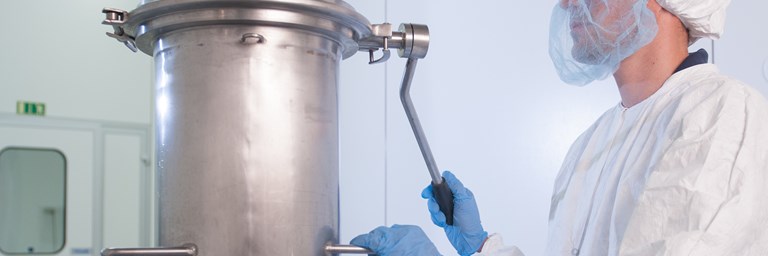The Future of Generic Pharmaceuticals: Innovations and Trends

The Future of Generic Pharmaceuticals: Innovations and Trends
Generic pharmaceuticals have revolutionized the healthcare industry since they entered the market over five decades ago. They have expanded patient access to medications by providing more affordable alternatives to costly brand-name drugs, thereby lowering healthcare costs for consumers and improving public health.
The global generic pharmaceutical industry is growing significantly. But that’s not all: the trend towards complex generic drugs will continue as research progresses and drug product patents continue to expire, creating opportunities for generic drug manufacturers to embrace innovation and introduce new complex generics to the market. This is one of the FDA’s primary focus areas of regulatory science.
Personalized Medicine, Pharmacogenomics, Telemedicine, Telepharmacy, and – how not to mention it – Artificial Intelligence (AI) are just a few of the thematic areas that will soon transform this sector.
The future of generic pharmaceuticals is exciting, with new innovations and trends emerging that will improve patient access to medicines, reduce healthcare costs, and increase patient adherence. Staying informed and up to date with these trends is crucial in a rapidly changing industry.
Globally, the market is also shifting towards biosimilars and biopharmaceutical generics, providing more treatment options for complex diseases. Companies focusing on innovation, sustainability, and expansion into emerging markets will likely see substantial growth in the coming years. With growing healthcare costs globally, the future of the generic drugs market looks promising, offering significant opportunities for both established players and new entrants. By capitalizing on technological advancements and maintaining competitive pricing, the generic drugs market will continue to evolve, providing accessible healthcare to millions worldwide.
Who are the Main Players in this Sector?
Asia is known as the “pharmacy of the world” due to its large production and export of generic drugs. The future of generics in Asia looks promising, as the demand for affordable medicines continues to rise globally.
This part of the world has implemented various local policies to support the growth of the generic drug industry, such as the regulation of the prices of essential medicines and initiatives to promote the use of generic drugs.
In the face of continually escalating prices of trademarked drugs, generics offer hope as an alternative way of providing more affordable medicines to a larger number of people. However, challenges such as increasing competition, regulatory compliance, and protection of intellectual property rights may impact the growth of Asian businesses in the future.
What is happening, even in the last period, is there for all to see: the growing trend of more manufacturing back to Europe and the U.S. in order to reduce dependence on overseas suppliers.
Nevertheless, Asia’s strong expertise in generic drug manufacturing, aggressive pricing, and its large pool of skilled professionals give it today an undeniable competitive advantage in the global market.
Generic drugs production and market in Italy
What does it mean to produce generic drugs in Italy today?
The main production sites of generic drugs in Italy highlight some critical issues: high raw materials cost, continuous tensions and price fluctuations on energy costs, some reagents and solvents, absorption of many resources about management of the quality needs and of data Integrity procedures.
In recent years, there has been a trend of contraction in margins and a consequent substantial increase of investments. The two tendencies are not, of course, disconnected. The investments necessary to maintain a high level of competitiveness, together with those made mandatory by the adaptation to some standards, have had the effect of contracting the margins of the companies themselves.
The cost of raw materials has increased significantly along with all production costs, and the same about the investments that some companies made to maintain a high level of competitiveness and to meet the stringent regulations.
While Italian law mandates a minimum 20% price reduction for generics compared to reference medications at launch, the overall market penetration and price reductions after patent expiry remain relatively low. This is partly due to a lack of widespread regional initiatives promoting generics and a degree of distrust among patients regarding their efficacy. However, policies like transparency lists and the ability of pharmacists to suggest generic substitutions (unless otherwise specified by the physician) aim to encourage uptake.
Angelini Pharma
Over the years, the Company has remained committed to ensuring access to high-quality drugs at affordable prices. This vision, paired with continuous dialogue with healthcare professionals, has made the Company a trusted partner for doctors, patients and partners.
Angelini Pharma, part of Angelini Industries, is an international pharmaceutical company dedicated to researching, developing, and marketing health solutions that significantly improve people's quality of life. The company focuses mainly on Brain Health (including Mental Health and Epilepsy), Specialty and Primary Care, and Consumer Healthcare. Angelini Pharma is a fully integrated company with extensive and well-recognized research and development programs, world-class production facilities, and international commercialization activities of active ingredients and leading drugs in many market sectors.
Since 1967, Angelini Fine Chemicals has accelerated its R&D portfolio to the pharmaceutical market and proven to be one of the main interlocutors at a national and international level. With demonstrated success in API manufacturing and world-class capabilities in niche and high-barrier-to-entry technologies, Angelini Fine Chemicals supports the chemical development and cGMP manufacture of complex APIs. A qualified team of synthetic and analytical chemists is committed to delivering focused solutions to your API manufacturing challenges, complemented by highly experienced regulatory professionals and supply chain experts to ensure all aspects of your API project are handled with expert care.
CARLO LUSSO
Sales & Custom Synthesis BD Manager
Angelini Pharma | Fine Chemicals Business Unit
